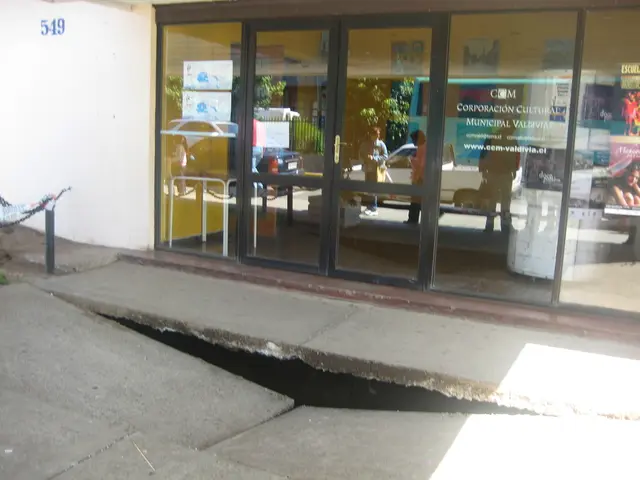RFK Jr.'s Push for Wellness: Campaign Aimed at Improving America's Health
In a conversation with my child - a registered nurse practitioner specializing in addiction medicine - I pondered, "What if Narcan, the antidote for opiate overdoses, suddenly vanished from pharmacy shelves?" She lamented, "More people would die of overdoses."
Perhaps you're the type to shrug off overdose deaths because you believe those who abuse drugs like fentanyl deserve their fate. If that's your attitude, I'm not here to change your mind.
However, if you view addiction as a disease, as most medical professionals do, then you'd likely support anything that prevents deaths and curtails the heartache of families devastated by needless, accidental drug overdoses. And if you've suffered through a 14-year opioid addiction, you'd do everything within your power to make Narcan, aka naloxone, as readily available as possible at a time when fentanyl continues to ravage America.
Intriguingly, Robert F. Kennedy Jr., the former heroin addict and current Health and Human Services Secretary, has remained uncharacteristically silent on the proposed elimination of the department's $56-million program that disperses naloxone kits and educates people on how to use them. With Trump and Musk's relentless crusade to boost American birth rates, one might anticipate more empathy and support for a program that saves lives and offers hope to those battling addiction.
Alas, RFK Jr.'s tenure at the helm of the Health and Human Services Department has been marked by staff purges, budget slashes, and dismantling crucial programs:
- The Centers for Disease Control and Prevention's unit focused on lead poisoning prevention was dismantled.
- The black lung screening program for coal miners was abolished before public outcry led to its reinstatement.
- Programs promoting smoking cessation, diabetes prevention, and cancer screenings have been closed down.
- The Food and Drug Administration lost seasoned veterinarians who worked to ensure the safety of pet food and milk during the bird flu outbreak.
- Scientists at the U.S. labs tracking sexually transmitted diseases, such as drug-resistant gonorrhea and viral hepatitis, were let go.
But the most concerning trend is Kennedy's stance on vaccines. Despite his history of promoting anti-vaccine rhetoric and undermining the scientific consensus on vaccines, he has recently announced plans to reveal the cause of autism by September. To many experts, this move amounts to nothing more than pseudoscience peddled by a charlatan.
In conclusion, the Trump administration's proposed cuts to the naloxone program, coupled with RFK Jr.'s misguided crusade against vaccines, paint a troubling picture for the future of American health and wellness. It's high time we demand better from our leaders and demand an evidence-based, compassionate approach to public health.
- The proposed elimination of the Health and Human Services Department's $56-million naloxone program raises concern, particularly for those affected by the opioid crisis.
- If the antidote for opiate overdoses, Narcan, were to suddenly disappear from pharmacy shelves, more people would die of overdoses.
- In a conversation about this potential scenario, one might anticipate more empathy and support from government officials for a program that prevents deaths and Curtails the heartache of families.
- However, Robert F. Kennedy Jr., the Health and Human Services Secretary, remains silent on the proposed elimination of the naloxone program, despite the ongoing opioid crisis.
- Kennedy's tenure at the Health and Human Services Department has been marked by staff purges, budget slashes, and dismantling crucial programs aimed at public health and safety.
- The most concerning trend is Kennedy's stance on vaccines, which contradicts the scientific consensus and risks the health and well-being of the general public.
- In the realm of health-and-wellness and mental-health, it's vital to promote evidence-based, compassionate approaches to public health, rather than pseudoscience peddled by charlatans.
- Now is the time to demand better from our leaders, advocating for an evidence-based, compassionate approach to public health that prioritizes the well-being of all citizens, including those facing addiction and the threat of deadly overdoses.








